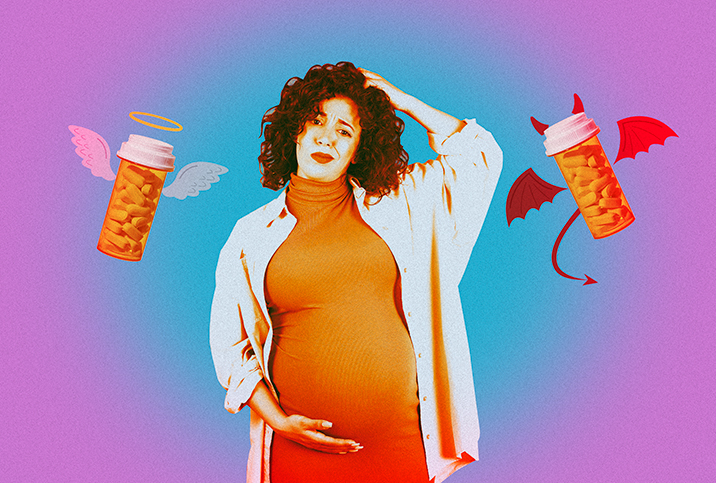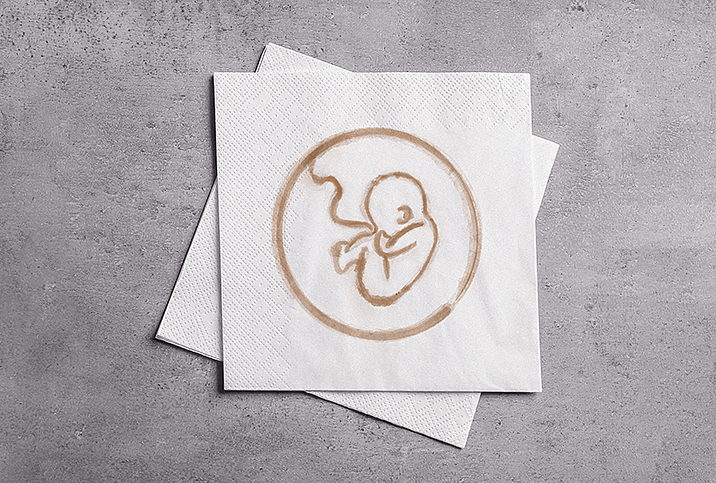What Medicines Should Pregnant Women Avoid?

Whether you're currently on medication or plan on taking medication while pregnant, the first course of action is to talk to your doctor. Google can't tell you the right answer and neither can your friend who was on the same medication while pregnant, because every individual has different health needs.
Still, there are general guidelines that pregnant women or women looking to conceive can follow. The U.S. Department of Health and Human Services offers guidelines that rate the safety of medications as category A, B, C, D and X drugs.
Why would pregnant women need to avoid medication?
Women who are already pregnant, looking to conceive or are breastfeeding will want to ensure the medication they're taking is not harmful to them or their baby. Some medications may cause abnormalities or complications during pregnancy and even after, by transferring into breast milk.
However, since the mental health and physical health of a mother is just as important as their baby's health, it's vital that doctors work with mothers to find safe medicinal options. Even if there are some risks involved, it might be in the best interest for you to take that risk in order to preserve your own health. This is why it's crucial to speak with a doctor and make those decisions under their care.
Category drugs
As stated above, there are five categories that are used to classify the safety of particular drugs for pregnant women: A, B, C, D and X.
Category A: No-risk drugs
Category A drugs are defined as those where "adequate and well-controlled studies have failed to demonstrate a risk to the fetus in the first trimester of pregnancy (and there is no evidence of risk in later trimesters)," according to the Federal Drug Administration (FDA).
At this time, there are no category A drugs, meaning no drug has been shown to be safe for pregnant women 100 percent of the time. All medicines have some level of risk, even if small.
Category B: Safe drugs
The FDA defines category B drugs as generally safe. Animal reproduction studies have shown no fetus risk. However, no well-controlled studies have been conducted on pregnant women.
Examples of category B drugs include acetaminophen (Tylenol), amoxicillin (antibiotics) and antidepressants like Wellbutrin and Ludiomil.
Category C: Relatively safe drugs
This category of drugs contains medications that are potentially unsafe, but doctors may still recommend them on a patient-by-patient basis. "Animal reproduction studies have shown an adverse effect on the fetus and there are no adequate and well-controlled studies in humans, but potential benefits may warrant use of the drug in pregnant women despite potential risks," according to the FDA.
Examples of category C drugs include Lexapro, Prozac and Zoloft.
Category D: At-risk drugs
In certain cases, doctors may recommend these medications, but studies have shown detrimental effects. "There is positive evidence of human fetal risk based on adverse reaction data from investigational or marketing experience or studies in humans, but potential benefits may warrant use of the drug in pregnant women despite potential risks," the FDA states.
Examples include Xanax, Klonopin and Valium.
Category X: Unsafe drugs
Category X drugs include medications that are categorically unsafe for pregnant women. "Studies in animals or humans have demonstrated fetal abnormalities and/or there is positive evidence of human fetal risk based on adverse reaction data from investigational or marketing experience," according to the FDA, "and the risks involved in use of the drug in pregnant women clearly outweigh potential benefits."
Examples include Oxytocin, Triazolam and emergency contraception.
General doctor advice
According to Jennifer Butt, M.D., a New York–based OB-GYN, pregnant women should avoid taking NSAIDs, such as ibuprofen, but they can take Tylenol (acetaminophen) for fever or to reduce pain.
"As a general rule, medications that are contraindicated in pregnancy are: NSAIDs, Isotretinoin, (ACE) inhibitors, ciprofloxacin, Coumadin, methotrexate [and] tetracyclines," said Kecia Gaither, M.D., an OB-GYN and director of perinatal services/director of maternal-fetal medicine for NYC Health + Hospitals/Lincoln in the Bronx.
NSAIDs, such as Advil, which are commonly used, have been shown to affect a fetus' circulation and kidneys. Isotretinoin, which helps severe acne, has been shown to cause birth side effects. The other drugs Gaither listed above have been shown to harm the fetus or the development of a baby.
"Generally speaking, antihistamines for allergies, stool softeners like Colace for constipation, and Tums for heartburn are common over-the-counter medications that are safe to take while pregnant," Butt said. "There are some antidepressants and anti-anxiety medications that are safe to take during pregnancy, but it is best to ask your doctor."
Some medications whose benefits outweigh the risk may be approved by a doctor after consultation, Gaither said. For example, if a woman's mental or physical health will suffer without the medication, doctors will typically OK the use of category C and even D drugs.
If you are taking medication and hoping to soon become pregnant, don't worry: Your doctor will advise you on the best steps to ensure your baby's health and safety—and your own. "If you are thinking about getting pregnant," Butt said, "it's strongly encouraged to schedule a family planning appointment with your OB-GYN."


















